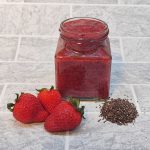Does food affect my mental health?
Have you ever experienced a sudden boost in happiness and energy after indulging in a delicious and nutritious meal? Or maybe you’ve felt the opposite—feeling sluggish, irritable, or even experiencing mood swings after consuming certain foods. It’s no coincidence. The food we eat has a profound impact on our mental and emotional well-being. In this article, we’ll explore this intricate relationship and provide insights into how your diet can significantly affect your mood and overall well-being. We’ll answer the question “how does food affect my mood?”
The Gut-Brain Connection: Unravelling the Link
The gut-brain connection is a complex and bidirectional communication network between our digestive system (gut) and our brain, influencing our mood and mental health. This intricate system involves neurotransmitters like serotonin and dopamine, which are crucial for mood regulation. Additionally, the gut microbiota, the community of microorganisms residing in your digestive system, plays a pivotal role in this connection. We’ll delve into the science behind this connection, explaining the roles of these neurotransmitters and the impact of the gut microbiota on your emotional well-being. By understanding this connection, you can make informed choices to nurture a healthy gut-brain axis, potentially alleviating mood-related issues and supporting a more positive outlook on life.

Nutrients for a Happier You: Fuelling Your Mood
Certain nutrients play a vital role in supporting our mood and mental health. For instance, omega-3 fatty acids, found in fatty fish, walnuts, and flaxseeds, are known to support brain health and reduce symptoms of depression. B vitamins, abundant in leafy greens, whole grains, and legumes, are crucial for the production of neurotransmitters that regulate mood. We’ll delve into these essential nutrients, discussing their specific functions and food sources. By incorporating these mood-boosting nutrients into your diet, you can nourish your brain and support emotional well-being, potentially experiencing a brighter and more stable outlook on life.

The Impact of Processed Foods: Unravelling the Negative Effects
Highly processed foods are often a regular part of modern diets, but they bring a range of health concerns. These foods are stripped of essential nutrients during manufacturing, offering empty calories with little nutritional value. They often contain high levels of added sugars, salt, and unhealthy fats, contributing to energy spikes and crashes, mood swings, and various chronic diseases like obesity and diabetes. Moreover, they can trigger inflammation, which is linked to mood disorders, heart disease, and cancer. Additives and preservatives used to enhance flavor and extend shelf life can have adverse health effects. Regular consumption of processed foods is associated with a higher risk of chronic diseases. Their hyper-palatability can lead to overeating, contributing to weight gain and emotional stress. Additionally, these foods are often devoid of fiber, leading to digestive problems. Considering the environmental and ethical concerns surrounding their production, opting for a diet based on whole, minimally processed foods is not only healthier for you but also more sustainable and mindful of the planet.

The Sweet Dilemma: Sugar’s Impact on Mood
Sugar, often referred to as the “sweet poison,” can have a profound impact on mood and well-being. It can lead to a “sugar rush” followed by a crash, causing irritability and mood swings. The addictive nature of sugar can result in overeating, contributing to mood disorders and eating disorders. Excessive sugar consumption has links to inflammation, affecting mood-regulating hormones like serotonin. This complex interplay between sugar and mood underscores the importance of moderation in managing sugar’s destructive potential for a more balanced and positive mood. By being mindful of sugar intake and opting for healthier sweeteners or natural alternatives, individuals can take a proactive approach to maintain stable moods and overall emotional well-being.
Mindful Eating for Emotional Wellness: Nourishing Body and Mind
Mindful eating is a practice that encourages us to be fully present and aware of our food choices, eating habits, and sensations while eating. By adopting mindful eating practices, such as slowing down, savoring each bite, and paying attention to hunger and satiety cues, you can develop a healthier relationship with food, enhance digestion, and foster a sense of satisfaction. This mindful approach to eating can positively influence our mood, promoting a balanced and enjoyable eating experience. Incorporating mindfulness into your daily meals can potentially transform your relationship with food, enhancing your emotional well-being.
For more information on mindful eating, read my complete guide to eating mindfully.
The Role of Probiotics and Fermented Foods: Cultivating a Healthy Gut
The gut microbiota, the community of microorganisms residing in our digestive system, plays a significant role in our mental health. Beneficial bacteria introduced to the gut through probiotics and fermented foods support a diverse and healthy microbiota. Studies have linked a balanced gut microbiome to improved mood and reduced symptoms of anxiety and depression. We’ll also discuss probiotic-rich foods like yogurt, kefir, sauerkraut, and kimchi, providing practical tips for incorporating these gut-friendly foods into your daily diet. Understanding the pivotal role of these foods allows you to take steps to promote a healthy gut, potentially leading to a more positive and balanced emotional state.

Recipes for a Mood-Boosting Diet: Nourishing Your Emotions
To put theory into practice, I’ve provided a collection of delicious and nutrient-packed recipes designed to support a positive mood and overall well-being. Each recipe will showcase ingredients known for their mood-enhancing properties. By incorporating these recipes into your meal planning, you’ll be nourishing your body and emotions simultaneously.





Understanding the powerful connection between food and mood allows us to make conscious choices that positively impact our mental and emotional well-being. By prioritizing nutrients that support brain health, being mindful of our eating habits, and nurturing a healthy gut, we can take control of our mood and cultivate a happier and healthier lifestyle. Remember, it’s the small changes in your diet that can make a significant difference in your overall well-being. So, let’s embrace the incredible power of food to nourish not just our bodies, but also our minds. Hopefully you can now answer the question “how does food affect my mood?”.





